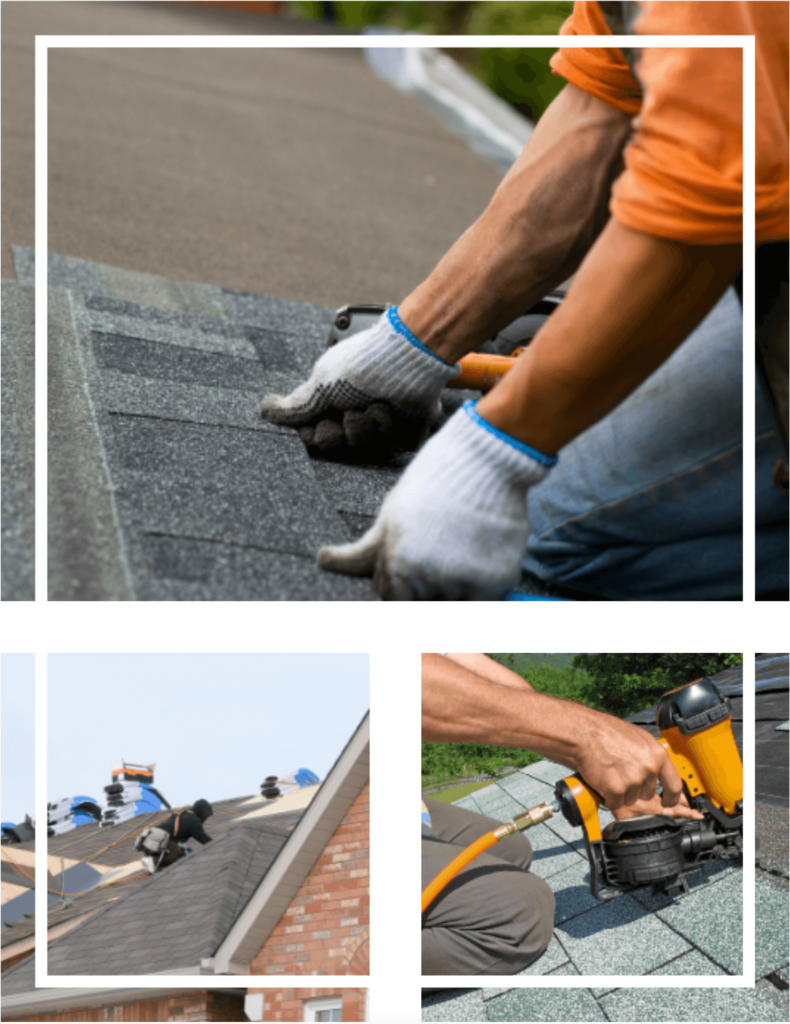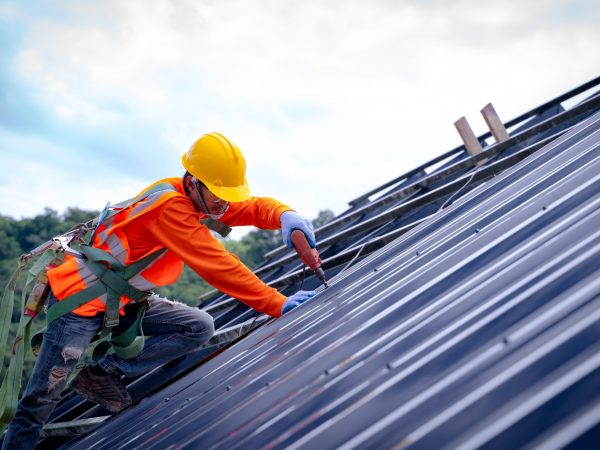Quick Take: Understanding the truth behind common roof repair myths can save homeowners time and money. Expert roofers debunk these misconceptions to help you make informed decisions about roofing solutions.
Introduction: The Importance of Accurate Roof Repair Knowledge
When it comes to maintaining your home, the roof is often an afterthought until problems arise. Unfortunately, misinformation about roof repair can lead to costly mistakes and unnecessary stress. In this article, we’ll explore Common Roof Repair Myths Debunked by Expert Roofers, helping you understand the facts so you can protect your investment effectively.
Understanding Your Roof: Why It Matters
Your roof serves as the first line of defense against the elements. Keeping it in top condition is essential for maintaining your home's structural integrity and value. Whether you're searching for "roofers near me" or considering Colorado roofers for repairs, knowing the truth behind common myths can guide your choices.
Myth 1: All Roof Damage is Visible from the Ground
Many homeowners believe that if they can't see damage from the ground, their roof must be fine. However, this myth can lead to severe issues going unnoticed.
Hidden Damage Can Be Deceptive
- Internal Leaks: Water may seep through unnoticed and cause extensive damage before it becomes visible. Shingle Deterioration: Aging shingles may degrade without obvious signs, leading to leaks. Structural Issues: Problems like sagging or weakened rafters often require professional inspection.
Expert roofers stress that regular inspections are crucial for identifying hidden issues early on.
Myth 2: You Can DIY Most Roof Repairs
While some minor maintenance tasks can be tackled by homeowners, many roofing repairs should be left to professionals.
Why Professional Help Is Essential
- Safety Risks: Climbing onto a roof poses significant risks without proper training and equipment. Quality Workmanship: Roofing contractors have experience in handling various types of materials and structures. Warranty Considerations: DIY repairs could void warranties on materials or workmanship.
Thinking of tackling that leak yourself? Consider consulting local roofing companies for advice before doing anything risky.
Myth 3: All Roofing Materials Are Created Equal
Not all roofing materials offer the same durability or longevity. Choosing quality materials is critical for long-term performance.
Material Choice Impacts Longevity
- Asphalt Shingles vs. Metal Roofing: While asphalt shingles are cost-effective, metal roofs often last longer with better resistance to weather conditions. Environmental Considerations: Some materials are more eco-friendly than others, which can affect your choice based on personal values.
Consulting with Colorado roofers can help you determine the best material suited for your region's climate and environmental needs.
Myth 4: A New Roof Can Be Installed Over an Old One
Many homeowners think they can save money by layering new shingles over old ones. While this might seem like a quick fix, it's not always advisable.
Why Layering Isn't Always Best
- Weight Concerns: Additional layers can add weight that stresses your structure. Increased Risk of Leaks: New shingles laid over damaged ones may not seal properly. Inspection Challenges: Hidden damage beneath existing layers might go unaddressed.
Roofing contractors typically recommend a full tear-off for a long-lasting solution rather than a temporary fix.

Myth 5: Roofs Only Need Maintenance After Major Storms
Another common misconception is that routine maintenance isn't necessary unless major weather events occur.
The Importance of Regular Maintenance
- Preventative Care Saves Money: Regular inspections catch small issues before they escalate into costly repairs. Longevity of Your Roof: Consistent maintenance extends the lifespan of your roofing system. Energy Efficiency Boosts: Well-maintained roofs perform better in regulating home temperatures.
Engaging Denver roofers for regular check-ups ensures that your home remains protected year-round.
Myth 6: Insurance Covers All Roof Repairs
Many people assume that their homeowner's insurance will cover any damage to their roof, but this isn't always true.
Understanding Insurance Policies
- Coverage Limits Vary: Not all policies cover wear-and-tear or neglect-related damages. Claim Process Complexity: Filing claims often requires detailed documentation and assessments from professionals.
Knowledgeable roofing companies near you can provide insights into how to approach insurance claims effectively following storm damage or other incidents.
Myth 7: If There’s No Leak, Everything Is Fine
Just because there are no visible leaks doesn’t mean everything is alright with your Roofers near me roof. Many problems develop silently over time.
Proactive Inspections Are Key
Regular inspections help identify:
- Hidden water damage Potential mold growth Compromised insulation
Ignoring minor signs could lead to bigger headaches down the road; proactive care is vital in preserving your investment.
Myth 8: All Roofers Are Essentially Alike
With numerous roofing companies out there, it’s easy to assume their services are interchangeable—but that's far from reality.
Choosing Quality Over Quantity
When selecting a contractor:
- Look for credentials—licensed and insured companies offer more security. Read reviews—social proof helps gauge reliability and quality of work.
By researching local experts thoroughly, you ensure you're hiring a dependable team who will prioritize quality workmanship on your project.

Common Roof Repair Myths Debunked by Expert Roofers
These myths represent just a few misconceptions surrounding home roofing systems. By debunking them with factual information from expert roofers, homeowners gain confidence in making informed decisions about their roofs' maintenance and repair needs.
Key Benefits:
When distinguishing fact from fiction regarding roofing:
Greater awareness leads to better maintenance practices. Avoiding costly mistakes saves both time and money. Understanding material options enhances decision-making. Building trust with professionals fosters long-term relationships for ongoing needs.Myth 9: You Should Wait Until Winter Ends Before Repairing Your Roof
Some homeowners believe they should postpone repairs until winter passes—a dangerous gamble in areas prone to harsh winters like Colorado.
Winter Repairs Matter
Addressing issues promptly prevents:
- Increased risk of ice dams forming Further deterioration due to snow accumulation
Professional Denver roofers often advise scheduling repairs sooner rather than later when faced with potential winter hazards affecting performance negatively.
Myth 10: All Roofing Problems Are Obvious
Many assume visible signs indicate all underlying issues; however, many problems lurk beneath surfaces waiting patiently until revealed at inconvenient times—such as during heavy rains or storms!
Comprehensive Inspections Uncover Hidden Issues
Regular comprehensive inspections help identify:
Damaged flashing Cracked seals around vents Underlying structural problemsThese hidden issues could become major headaches if left unchecked—this emphasizes why proactive measures matter significantly!
FAQs About Common Roof Repair Myths
1. How often should I have my roof inspected?
It's generally recommended to have your roof inspected at least once a year and after severe weather events like hailstorms or heavy winds.
2. Can I use any type of shingle on my house?
Not necessarily; different climates require specific shingle types designed for durability under local conditions—consulting Colorado roofers will help identify suitable options tailored specifically for your area!
3. What happens if I ignore minor leaks?
Neglecting minor leaks can result in significant water damage over time, potentially leading to expensive repairs down the line as well as compromising structural integrity within walls/ceilings!
4. Will my insurance cover storm-related damages automatically?
Not always! Many policies have exclusions related specifically toward wear-and-tear versus sudden occurrences—always review policy details carefully before assuming coverage exists!
5. How do I find reputable roofing contractors near me?
Look online for customer reviews & ratings across multiple platforms (Google Reviews/Yelp) alongside asking friends/family recommendations—they often provide valuable insight into trustworthy professionals available locally!
6. What’s better—repairing or replacing my entire roof?

Conclusion
Navigating through common myths surrounding roofing requires diligence backed by expertise! By understanding truths behind these misconceptions—with insights provided directly from expert contractors—you'll feel empowered when making decisions regarding future maintenance needs! Prioritizing communication with skilled professionals ensures quality outcomes conducive toward safeguarding one’s most important asset—their home!